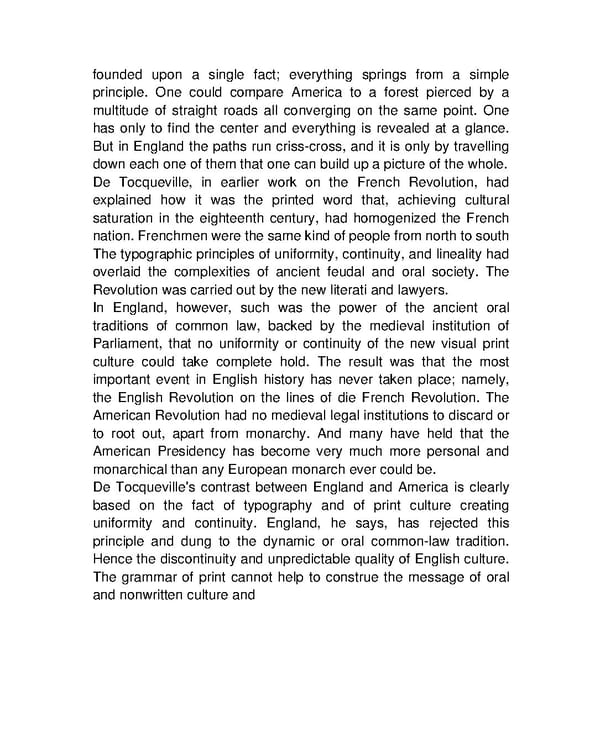founded upon a single fact; everything springs from a simple principle. One could compare America to a forest pierced by a multitude of straight roads all converging on the same point. One has only to find the center and everything is revealed at a glance. But in England the paths run criss-cross, and it is only by travelling down each one of them that one can build up a picture of the whole. De Tocqueville, in earlier work on the French Revolution, had explained how it was the printed word that, achieving cultural saturation in the eighteenth century, had homogenized the French nation. Frenchmen were the same kind of people from north to south The typographic principles of uniformity, continuity, and lineality had overlaid the complexities of ancient feudal and oral society. The Revolution was carried out by the new literati and lawyers. In England, however, such was the power of the ancient oral traditions of common law, backed by the medieval institution of Parliament, that no uniformity or continuity of the new visual print culture could take complete hold. The result was that the most important event in English history has never taken place; namely, the English Revolution on the lines of die French Revolution. The American Revolution had no medieval legal institutions to discard or to root out, apart from monarchy. And many have held that the American Presidency has become very much more personal and monarchical than any European monarch ever could be. De Tocqueville's contrast between England and America is clearly based on the fact of typography and of print culture creating uniformity and continuity. England, he says, has rejected this principle and dung to the dynamic or oral common-law tradition. Hence the discontinuity and unpredictable quality of English culture. The grammar of print cannot help to construe the message of oral and nonwritten culture and
 Understanding Media by Marshall McLuhan Page 15 Page 17
Understanding Media by Marshall McLuhan Page 15 Page 17